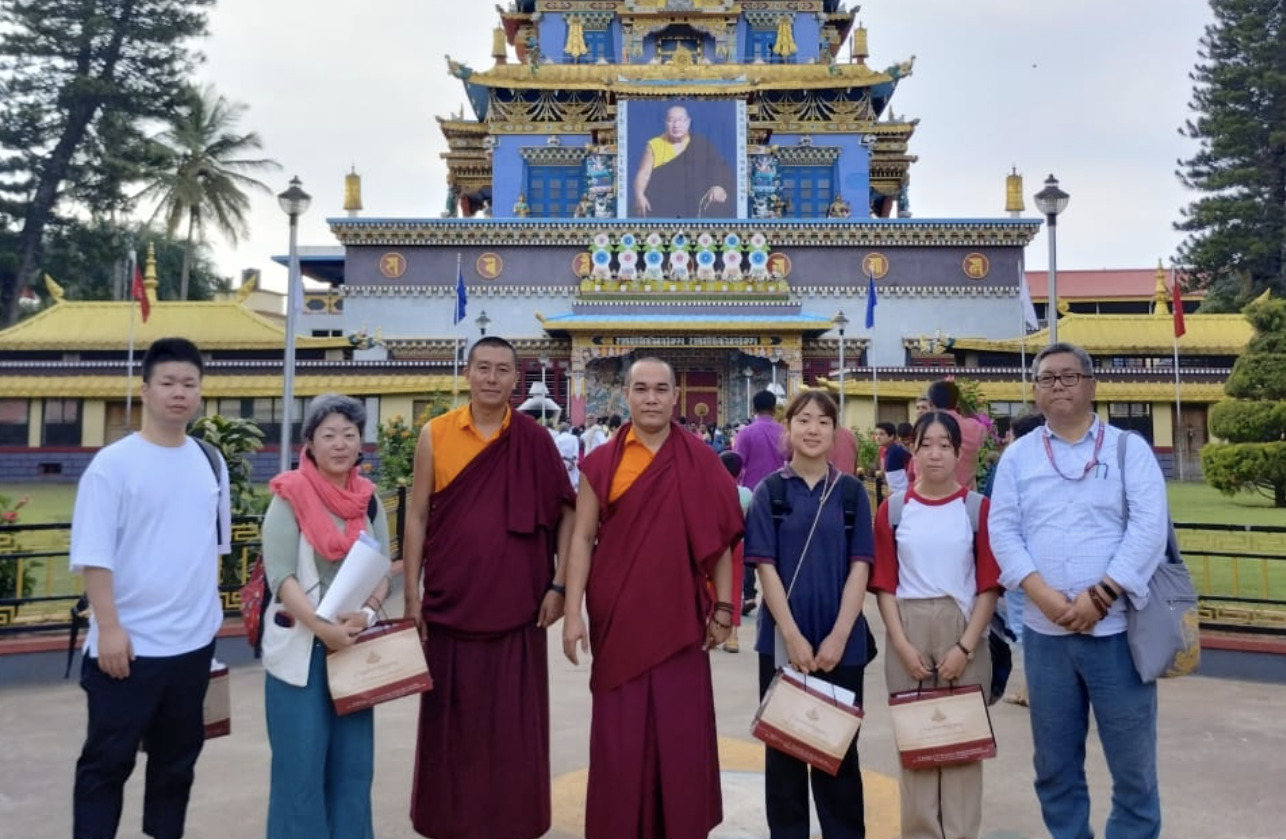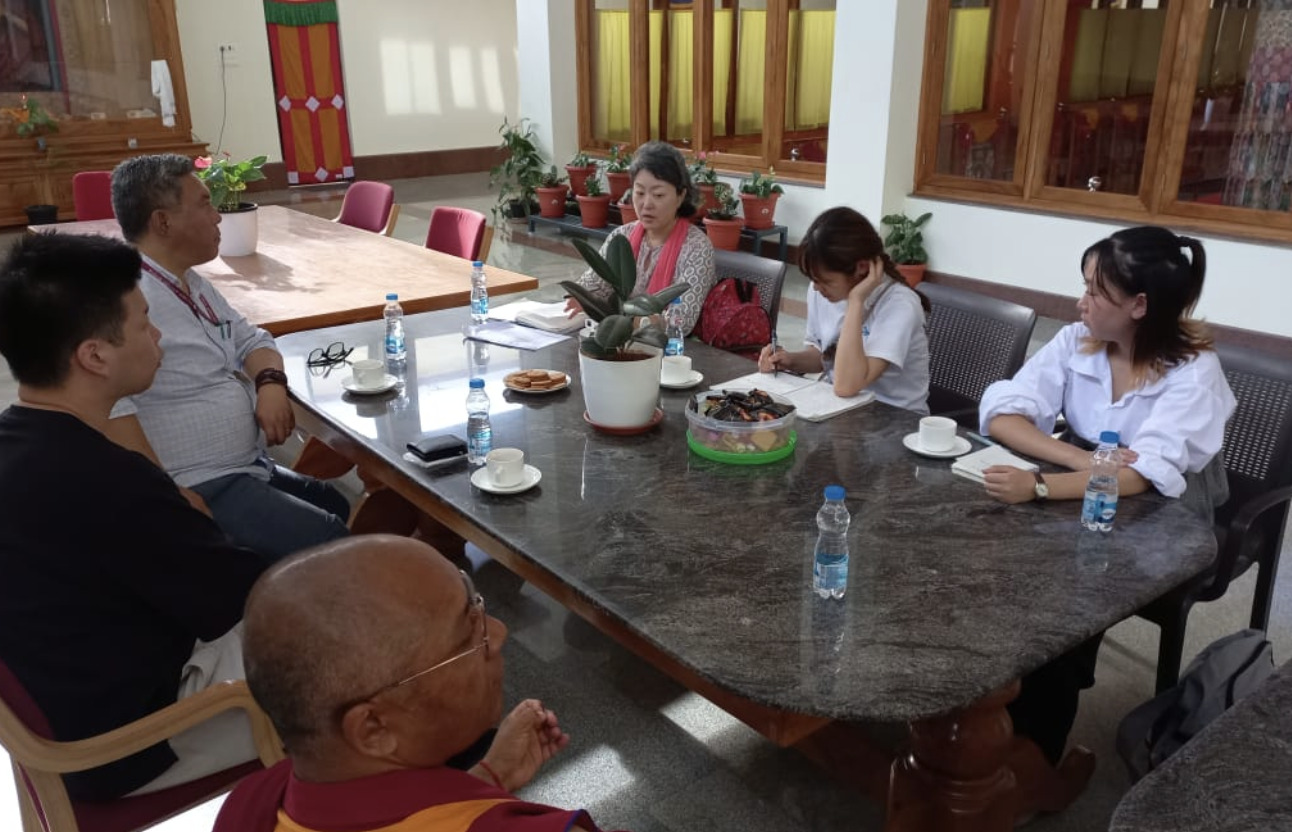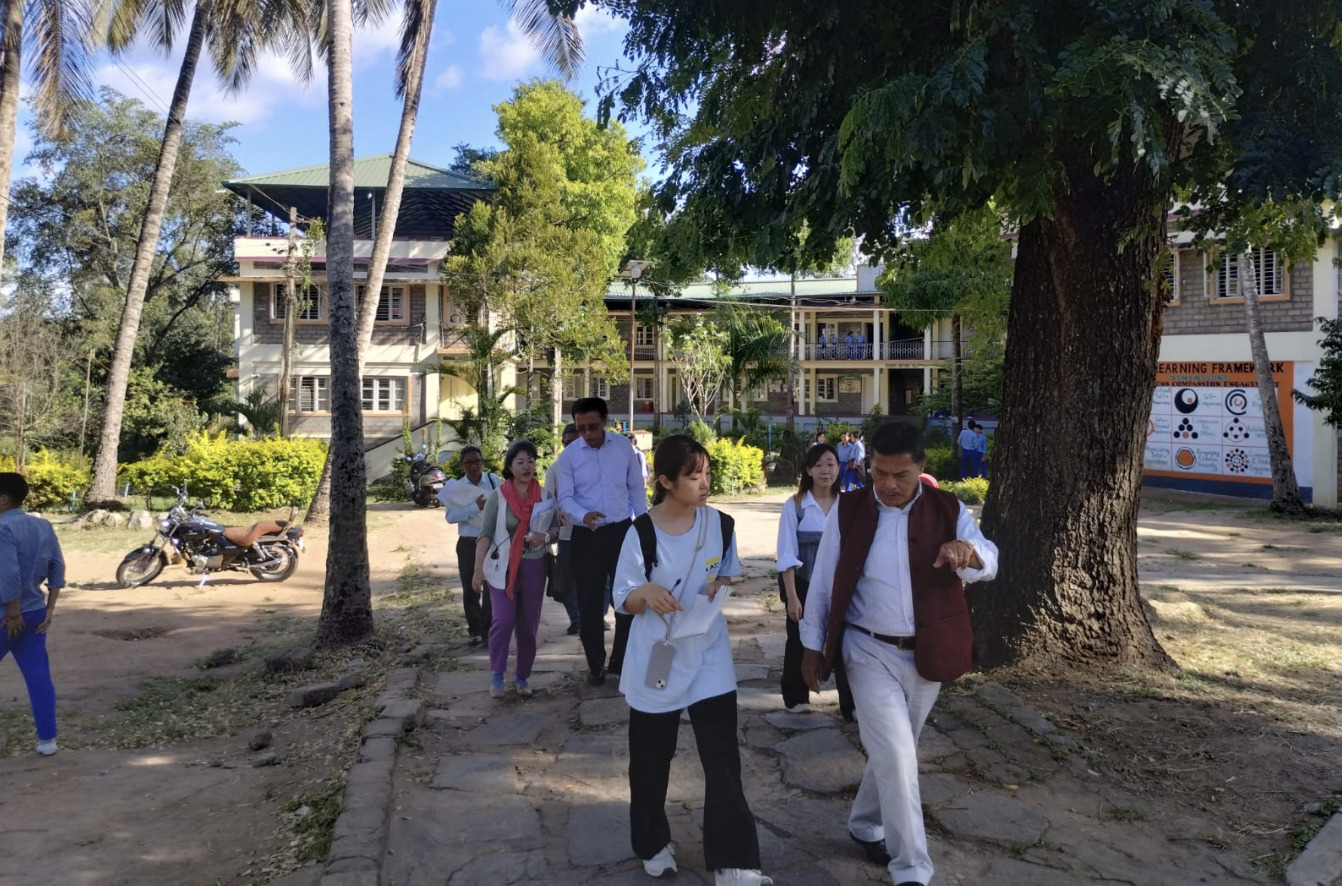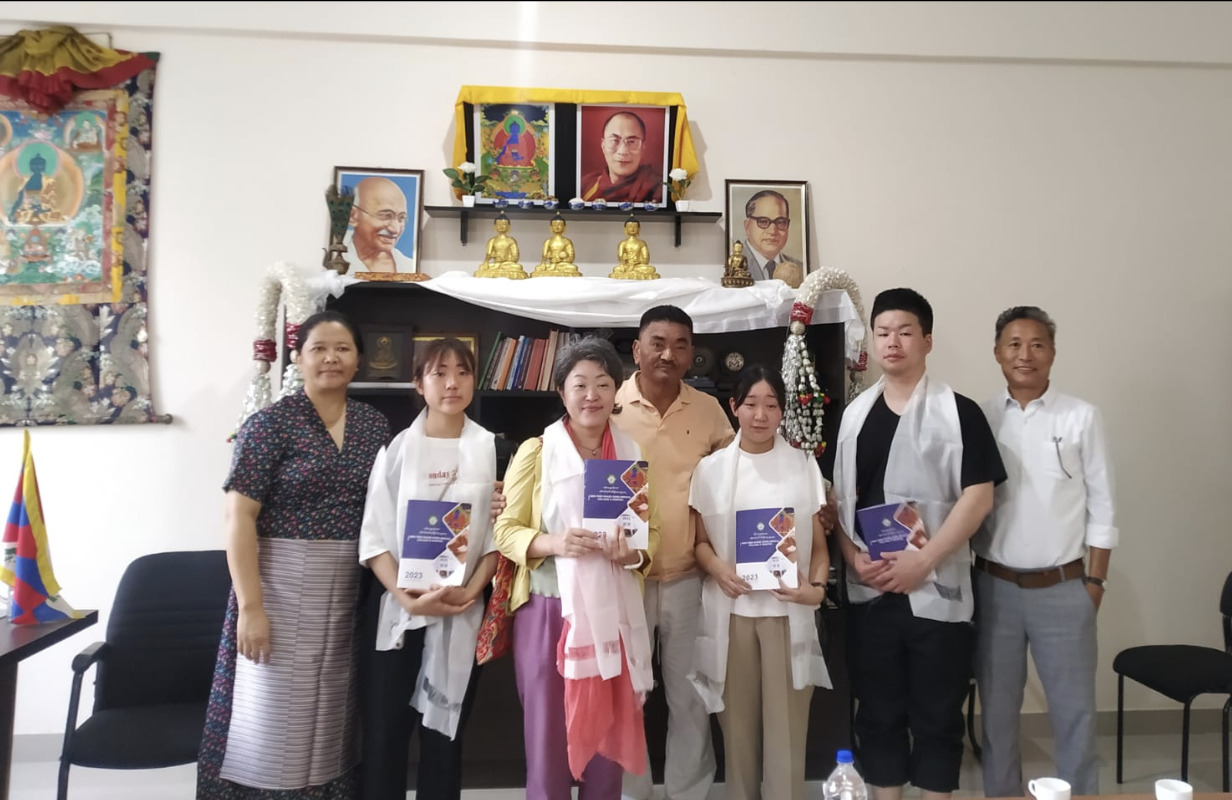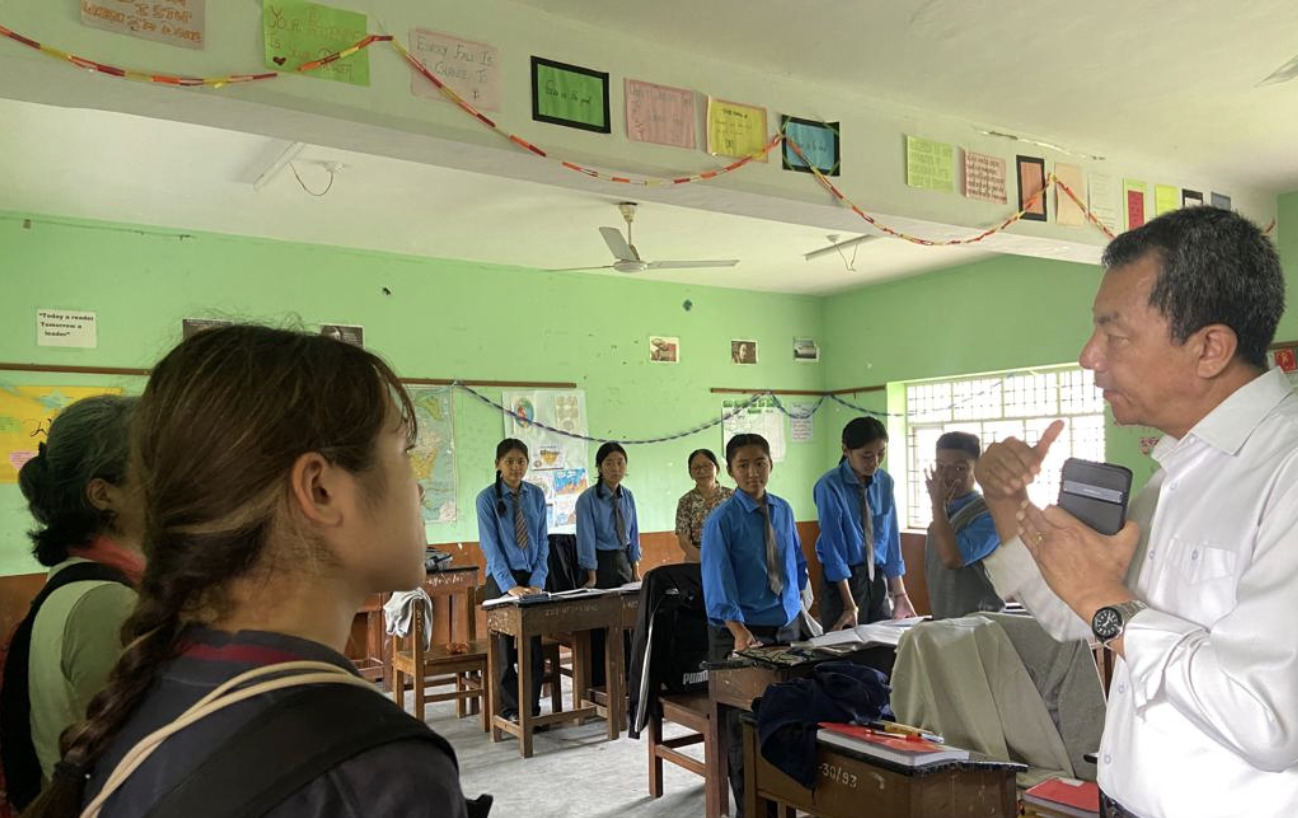
Dawa Tashi, Principal of Shambhota Senior School in Bylakuppe, providing guidance to the Japanese delegations, about the school campus and classrooms.
Bengaluru: An inspiring and enlightening journey of educational and cultural exchange, led by Dr. Miki Enoki, Associate Professor at Nagoya City University, took place in the vibrant Tibetan exile settlement of Bylakuppe. The delegation, comprised of Dr. Enoki and her students, Rei Mizuma and Akari Toyoda, along with Kosho Asai, embarked on this remarkable voyage. Guided by Jigmey Tsultrim, Chief Representative of the South Zone, Central Tibetan Administration (CTA), the delegation embarked on an exploration that left them with profound insights into the Tibetan way of life and culture.
The journey commenced with an immersive exploration of the daily lives and experiences of the resilient Tibetan community in Bylakuppe. This initial encounter served as a foundation for the delegation’s cultural immersion, fostering a deep sense of empathy, respect, and kinship for the Tibetan people. The unity of purpose and shared values across cultures became evident as the delegation delved into the intricacies of Tibetan life in exile.
A visit to the Senior Sambhota School of Bylakuppe provided a window into the world of Tibetan students. This educational institution became a platform for cross-cultural exchange, where the delegation not only observed but actively engaged with Tibetan students. This experience instilled in them a profound sense of connection and solidarity with the young scholars, underscoring the universality of the human experience.
The delegation’s journey continued to the Namdoling Monasteries and the awe-inspiring Golden Temple, both nestled amidst picturesque surroundings. These sacred sites invoked a profound sense of inner peace and tranquillity. Engaging in thoughtful discussions on Buddhism in exile, the delegation deepened their understanding of the spiritual and cultural facts of Tibetan society, leaving a lasting impact on their spiritual and intellectual growth.
The delegation’s engagement with Tibetan agriculture and the Organic Research and Training Center (ORTC) ignited a passion for sustainable farming practices. They recognised the significance of organic agriculture in achieving sustainable development in the Tibetan context. This newfound interest laid the foundation for future collaborations and research opportunities.
At Sera Mey Monastery, the delegation was honoured to receive the blessings of Abbot Khen Rinpoche Tashi Tsering. This spiritual encounter deepened their connection to Tibetan spirituality and traditions, reinforcing the profound interplay between religion and culture.
The delegation’s visit to Tashi Lhunpo Monastery deepened their understanding of Tibetan heritage and history. Discussions revolved around the exile of the 10th Panchen Lama and the 11th Panchen Rinpoche, Jetsun Tenzin Gedun Yeshi Thinley Phuntsok palsangpo. The delegation was captivated by the story of Tashi Lhunpo Monastery’s establishment in exile, which served as a symbol of resilience and cultural preservation.
Engaging with Tibetan students at CVP School Bylakuppe provided firsthand insight into Tibetan hospitality and culture. The delegation was not just passive observers; they actively participated in cultural exchange by donning beautiful Tibetan attire. This experience left them with a profound appreciation for the vibrancy of Tibetan culture.
Visits to Lugsum Tibetan Settlement and SOS TCV Bylakuppe underscored the paramount importance of preserving Tibetan culture and language. The delegation gained a deep understanding of the significance of cultural identity in the face of adversity, reinforcing the notion that culture and language are the pillars of a community’s resilience.
The journey culminated with visits to Bangalore Men-Tsee-Khang Sowa Rigpa Medical College, where they explored the rich history of Tibetan medicine. The delegation engaged in meaningful discussions with the institute’s leadership and faculty. The campus tour at DLIHE provided valuable insights into the institution’s educational endeavours, fostering discussions on potential collaborations.
In conclusion, the Educational and Cultural Exchange Journey in Bylakuppe was an immersive and transformative experience. It transcended the boundaries of culture and geography, leaving an indelible mark on the hearts and minds of the delegation members. It deepened their understanding of Tibetan culture, spirituality, and history while sparking an enduring passion for sustainable agriculture and a profound appreciation for the Tibetan way of life.
This journey served as a testament to the power of cultural exchange in fostering understanding, empathy, and unity among diverse communities. It is not merely a chapter in the delegation’s journey but a testament to the shared humanity that unites us all, transcending borders and cultures. The experiences and connections forged in Bylakuppe will continue to inspire future endeavours in education and cultural exchange, strengthening the bonds between people and cultures worldwide.
-Report filed by CRO South Zone

Namdoling Secretary khenpo Tenzin Yeshi sharing the journey of Namdoling Monastery with the Japanese delegations.
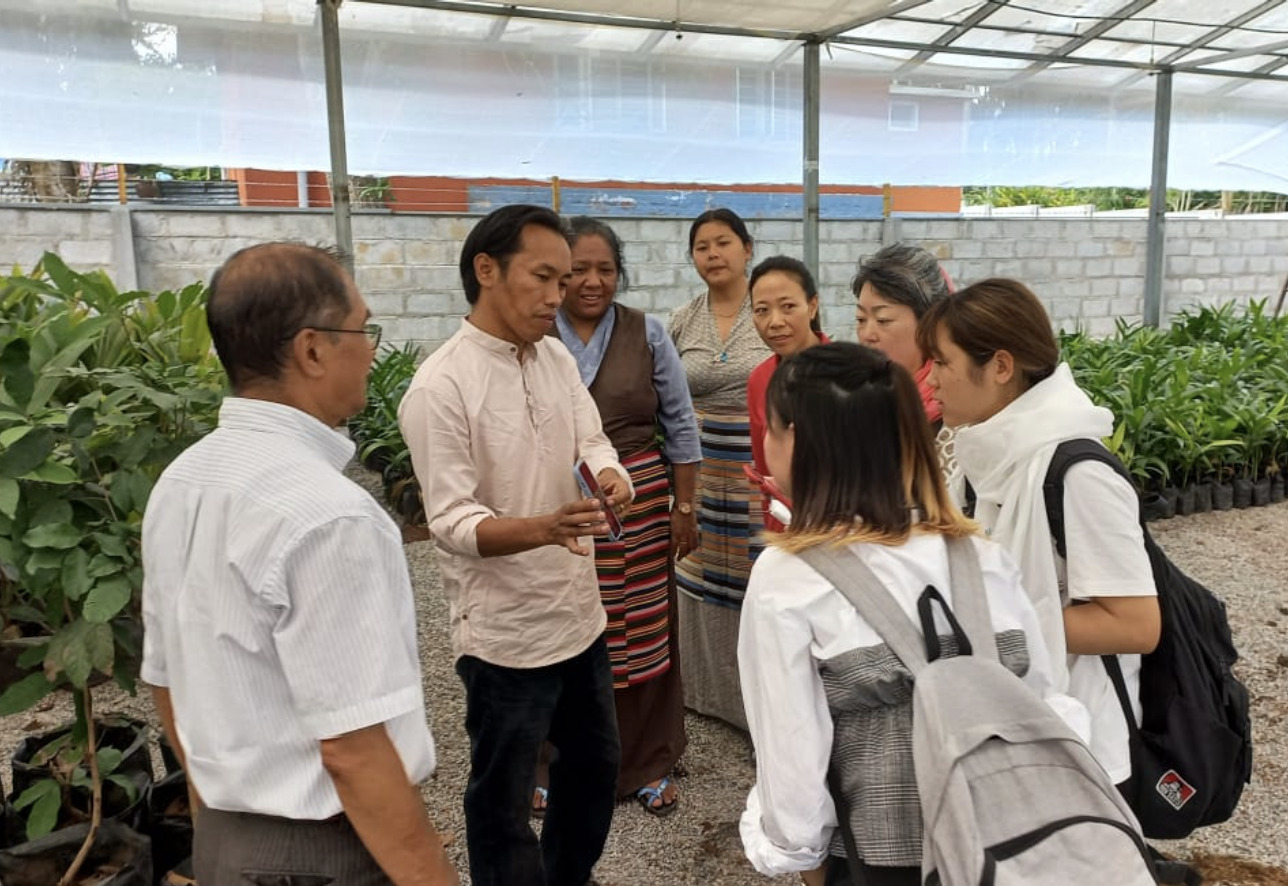
ORTC staff, including Director Tsering Dorjee, are having a discussion on the importance of organic agriculture in modern society with the Japanese delegations
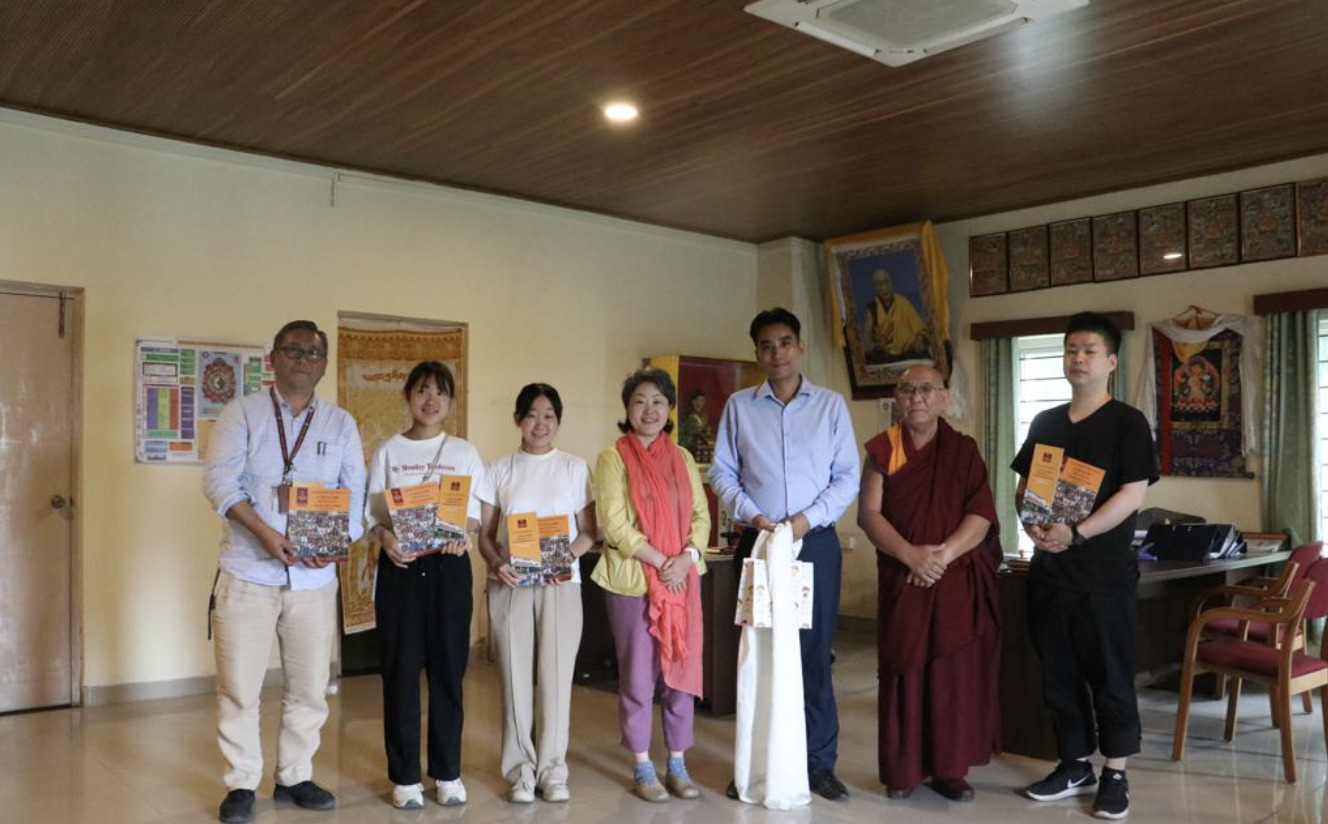
Japanese delegations with newly appointed Principal, Dr. Pasang, and Geshe Dorjee Gyurme from DLIHE.


